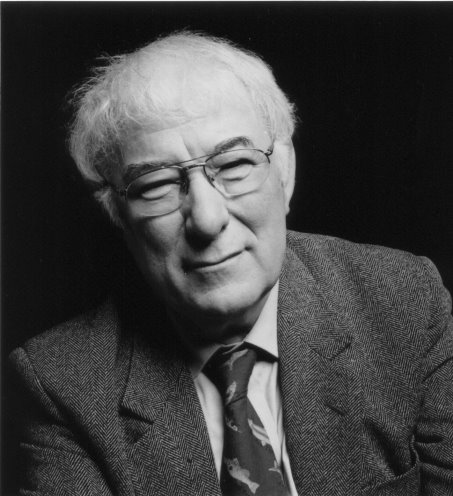 At the time of writing, in the first days of June 2009, it is still not clear why Arvind Krishna Mehrotra has not been declared winner of the election for the post of Oxford Professor of Poetry, the other two candidates having pulled out, one before the election, the other after. As the only surviving candidate, surely he should have been given the job automatically. Perhaps he himself resigned too quickly, having got the idea that resigning was the thing to do. The chair left vacant, the election was postponed until later in the year, and speculation has already started about who might run. Names have been put forward. One of them, startlingly, is mine. How did that happen?
At the time of writing, in the first days of June 2009, it is still not clear why Arvind Krishna Mehrotra has not been declared winner of the election for the post of Oxford Professor of Poetry, the other two candidates having pulled out, one before the election, the other after. As the only surviving candidate, surely he should have been given the job automatically. Perhaps he himself resigned too quickly, having got the idea that resigning was the thing to do. The chair left vacant, the election was postponed until later in the year, and speculation has already started about who might run. Names have been put forward. One of them, startlingly, is mine. How did that happen?
It started happening a few days before the election, when I was being interviewed, nominally about my latest 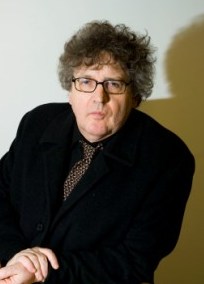 collection of essays, The Revolt of the Pendulum, a book I mention here because it wasn’t mentioned in the interview even once. My interviewer, Decca Aitkenhead of the Guardian, was charming, so when she asked me a question I did the thing I always do when asked a question by a charming woman. I opened my mouth to its full extent and put my foot in it up to the knee. The question was about the Oxford Poetry Professorship election debacle. “Would you like the job?” (Those might not have been her exact words, but that was the main thrust.) My answer (and these are far fewer than my exact words, but this is the thread) was: “I would love it, but not if I had to run in an election.” She used only the first bit – that I would love to have the job – and the Guardian editors flagged it as “Clive James throws his hat in the ring”.
collection of essays, The Revolt of the Pendulum, a book I mention here because it wasn’t mentioned in the interview even once. My interviewer, Decca Aitkenhead of the Guardian, was charming, so when she asked me a question I did the thing I always do when asked a question by a charming woman. I opened my mouth to its full extent and put my foot in it up to the knee. The question was about the Oxford Poetry Professorship election debacle. “Would you like the job?” (Those might not have been her exact words, but that was the main thrust.) My answer (and these are far fewer than my exact words, but this is the thread) was: “I would love it, but not if I had to run in an election.” She used only the first bit – that I would love to have the job – and the Guardian editors flagged it as “Clive James throws his hat in the ring”.
In reality, Clive James had already made it clear that he would rather throw himself off a cliff. But the thing had been said, the Australian papers had the story next day, a Spanish paper, bizarrely, had the story the day after that, and within a week my supposed candidature in the postponed election was being discussed, with at least two pundits in the British broadsheet weekend press allowing that I might not be a bad choice, in the absence of William McGonagall, E.J. Thribb or Baldur von Schirach, the Nazi youth leader who wrote a terza rima encomium to Adolf Hitler.
In my house on a Sunday morning, the major papers are read collectively by every female in the family including the cat, and very soon I was facing a tribunal. “Please say that not even you could be that stupid.” “You aren’t thinking about it, are you?” “You aren’t.” The cat was right: I wasn’t thinking about it. Not in the sense of actually going for it. But I couldn’t help thinking about the job itself.
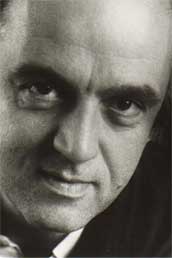 It is always a doomed effort to say “Let this cup pass from me” when you have already pronounced it attractive. And I do indeed find the Oxford Poetry Professorship just about the most attractive cup of its kind in existence. I would imagine that any poet who has spent his or her lifetime at the craft can only feel the same. The botched election might have made it a poisoned chalice, but what a chalice it is. You have only to think of the string of poets since WWII – Day Lewis, Auden, Graves, Blunden, Roy Fuller, John Wain, Heaney, Fenton, Muldoon – and think of how much you would have liked to hear them speak, summing up their knowledge, opening up whole fields of interest with the merest aside. You have only to think of how you would have quarrelled about them. Was Graves certifiable, or merely potty? Wasn’t Blunden a dim bulb beside the candidate he beat into second place, Robert Lowell? (Perhaps: but it was Blunden who wrote Undertones of War.) How could such an uneven poet as Wain be so fine a critic? You have only to think of one book: Heaney’s magnificent The Redress of Poetry, his richest critical work, and nearly all of it based on the lectures he gave while he held the office. In that book, he joined poetry to the world. Read it, students, and begin your adventure.
It is always a doomed effort to say “Let this cup pass from me” when you have already pronounced it attractive. And I do indeed find the Oxford Poetry Professorship just about the most attractive cup of its kind in existence. I would imagine that any poet who has spent his or her lifetime at the craft can only feel the same. The botched election might have made it a poisoned chalice, but what a chalice it is. You have only to think of the string of poets since WWII – Day Lewis, Auden, Graves, Blunden, Roy Fuller, John Wain, Heaney, Fenton, Muldoon – and think of how much you would have liked to hear them speak, summing up their knowledge, opening up whole fields of interest with the merest aside. You have only to think of how you would have quarrelled about them. Was Graves certifiable, or merely potty? Wasn’t Blunden a dim bulb beside the candidate he beat into second place, Robert Lowell? (Perhaps: but it was Blunden who wrote Undertones of War.) How could such an uneven poet as Wain be so fine a critic? You have only to think of one book: Heaney’s magnificent The Redress of Poetry, his richest critical work, and nearly all of it based on the lectures he gave while he held the office. In that book, he joined poetry to the world. Read it, students, and begin your adventure.
But wait a second, what’s the name of John Jones doing in the list, as Poetry Professor between 1978 and 1983? Few remember him now, and certainly there is no lasting evidence that he ever wrote poems. We should be fair to his literary competence and say that at least one of his books, a treatise called The Egotistical Sublime, was part of the general discussion for a while, and that he had a proven record as a professor of English. But that was just the trouble. They had elected, as Poetry Professor, an academic professor of English. How did it happen? Contemporary accounts remark on the campaigning skills of his wife. Apparently she knew how to win an election.
An alarm bell should have rung then, but most of us were probably not listening. Many of us were listening, however, 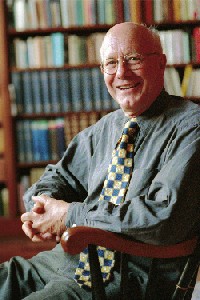 when it rang again at Peter Porter’s failure to win the post in a race against Christopher Ricks. Professor Ricks is a scholar, critic and lecturer of titanic prowess, and all are agreed that he did a mighty job. But he was not a poet. It could be said that he fell into the same hallowed category as erstwhile incumbents A.C. Bradley, J.W. Mackail, W.P. Ker and Maurice Bowra, who were not poets either, but knew an awful lot about it. (Lest you doubt his credentials, remember that it was Bowra who told Isaiah Berlin about Anna Akhmatova. Berlin had never heard of her. Bowra really had read everything.)
when it rang again at Peter Porter’s failure to win the post in a race against Christopher Ricks. Professor Ricks is a scholar, critic and lecturer of titanic prowess, and all are agreed that he did a mighty job. But he was not a poet. It could be said that he fell into the same hallowed category as erstwhile incumbents A.C. Bradley, J.W. Mackail, W.P. Ker and Maurice Bowra, who were not poets either, but knew an awful lot about it. (Lest you doubt his credentials, remember that it was Bowra who told Isaiah Berlin about Anna Akhmatova. Berlin had never heard of her. Bowra really had read everything.)
Knowing a lot about it, however, is not the same as doing it, and surely the importance of the post – the thing that makes it decisively different from all the other Professorships of literature in Oxford – depends on its holder being a mature poet with some actual, concrete, hard-won stuff to impart about how poetry gets written. All kinds of people can read poetry, and more than a few of them can study it: but only a poet can write it. If poets write it for a long time, they find a lot out, not just about their own work but about all the work by other people, in all ages and languages, that they think is vital. They are well placed to say why they think it so, and when they get near the finishing line they are ideally placed. They speak not so much ex cathedra as ex atelier, as it were.
From that viewpoint, I thought both Fenton and Muldoon a bit young, and I might say at this point that I would rule myself out for the same reason: despite what the clock might say, I’m only just getting started. Peter Porter, however, when he ran for the office, was ready to sum up. At the risk of losing his friendship, I might hazard that he would not have been quite as practised a lecturer as Professor Ricks. But Peter Porter, quite apart from his stature as a poet, is a greatly learned man, a born educator, and a whole world of poetry and the arts is already in his mind, never needing to be mugged up, all ready to be brought out. (He would have been a master of the Poetry Professor’s other, unofficial task, as exemplified by Auden and later by Heaney, which is to conduct the kind of informal tutorial that masquerades as a tertulia.) But the poet lost to a critic, because the critic had a superior campaign.
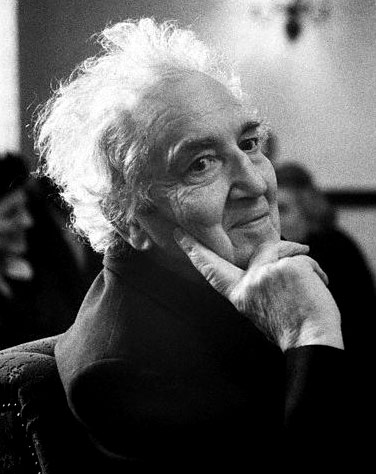 So there was already, to my mind at least, a prominent question mark over the electoral system before the recent election got started. But this time the press got into the act and the prominent question mark turned to vivid scarlet neon, wreathed in the smoke of hell-fire. When one of Ruth Padel’s unwisely enthusiastic friends in the press informed the rest of the press of what it should have known already, namely that Walcott had a sexual harassment case in his past, the election for the Oxford Professorship of Poetry became an American Presidential election in parodic miniature, with character as the only issue. It should have taken only a moment’s thought to realise that character is just about the last parameter by which to measure the English poets, among whom the Earl of Rochester and Lord Byron are locked in contention for the title of most wicked and both are outdone for male chauvinism by Milton in fifty different passages of Paradise Lost. But nobody was thinking except Walcott.
So there was already, to my mind at least, a prominent question mark over the electoral system before the recent election got started. But this time the press got into the act and the prominent question mark turned to vivid scarlet neon, wreathed in the smoke of hell-fire. When one of Ruth Padel’s unwisely enthusiastic friends in the press informed the rest of the press of what it should have known already, namely that Walcott had a sexual harassment case in his past, the election for the Oxford Professorship of Poetry became an American Presidential election in parodic miniature, with character as the only issue. It should have taken only a moment’s thought to realise that character is just about the last parameter by which to measure the English poets, among whom the Earl of Rochester and Lord Byron are locked in contention for the title of most wicked and both are outdone for male chauvinism by Milton in fifty different passages of Paradise Lost. But nobody was thinking except Walcott.
It could be that he had a lot to think about. I have no idea. Or rather I have some idea, but it is based only on the publicly available documentation, which is not very extensive. I have met people who say they know more, but they always seem to have learned it from someone else who knows everything, and him I have yet to meet. Those who were glad to see Walcott hounded out of the race were not impressed by the arguments of those of us who said that he was unlikely, at the age of 79, to launch himself from the podium and fall ravenously on the young lovely in the third row, and I quite see their point. If he had indeed once done what he was rumoured to have done, then he was a villain. But there would still have been little relevance to his qualifications to be Oxford Professor of Poetry, a post for which you want the kind of man, or indeed woman, that people would flock to hear if he, or she, were lecturing from behind bars.
Derek Walcott prudently retired before he could be scrutinised further, and Ruth Padel, gaining the office by default, 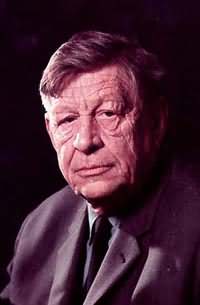 resigned from it because her part in ensuring that her opponent should be scrutinised in the first place was itself scrutinised. The press decided the issue, and the third candidate, Arvind Krishna Mehrotra, might have been giving us his judgment on the whole pitiful business by resigning in his turn. How would he have found the post worth holding, if the press had started scrutinising him? There might have been some unpleasantness about a disputed parking space back there in the University of Allahabad. Perhaps he had been photographed allowing his fond look to linger too long on the bare midriff of a Bollywood starlet while he was signing her well-thumbed copy of his collection The Transfiguring Places. And even if he had nothing to hide, why should he let himself be treated like an elected official?
resigned from it because her part in ensuring that her opponent should be scrutinised in the first place was itself scrutinised. The press decided the issue, and the third candidate, Arvind Krishna Mehrotra, might have been giving us his judgment on the whole pitiful business by resigning in his turn. How would he have found the post worth holding, if the press had started scrutinising him? There might have been some unpleasantness about a disputed parking space back there in the University of Allahabad. Perhaps he had been photographed allowing his fond look to linger too long on the bare midriff of a Bollywood starlet while he was signing her well-thumbed copy of his collection The Transfiguring Places. And even if he had nothing to hide, why should he let himself be treated like an elected official?
The conclusion is inescapable. Since every future election will be subject to invigilation by the press, the only solution is to scrap the election system. This would probably need to be done even if the press could somehow reach an agreement to stay out of the lives of the candidates, because already the question of who should hold the post next is subject to the demands of social engineering, which are no doubt worthy but are entirely irrelevant. Derek Walcott wasn’t running as the first black poet to aspire to the post. He was running as a great poet who happened to be black. If some time elapses before there is another great poet who happens to be black, then those are the breaks. There are no good reasons, only bad ones, for favouring P. Diddy as the next Oxford Professor of Poetry, just as there are no good reasons, only bad ones, for threatening a museum with a cut in its funds because not enough black people are coming to see the paintings. To think otherwise is just another way of patronising people of colour, and a particularly insidious one.
The same applies to the view (we might call it the Winterson view) by which it is supposed to be a tragedy that a woman poet could not get the post. A truly accomplished woman poet, U.A. Fanthorpe, ran for the office in 1994, and lost. But if another female poet of equivalent stature were to appear, she could be appointed. Carol Ann Duffy, who revered Fanthorpe, should be of just about the right magnitude if her completed term as laureate is judged successful, or even if it isn’t. But she would still be a bit young for the post. Kathleen Jamie, already impressive, should be magisterial by then; but she, too, will scarcely be ready to draw the conclusions of a lifetime. If either Duffy or Jamie gets hustled into an election ten years from now, it will be a bad sign. An appointments committee could make a principle of playing a long game.
Knowing what we know now, if we review the list of successive professorial terms in the modern era, there were times when Marianne Moore could have been appointed, or Elizabeth Bishop. But the reason to appoint them would have been that they were great and learned poets, and not because they were women. If they had run in elections, of course, they would probably have lost, because the electorate, all the graduates of Oxford, would have had to be persuaded that it was time for a woman.
The electorate is no doubt persuaded of that now, but what is the persuasion worth? It’s all a matter of mediatised opinion, when what should count is well-informed opinion, as agreed on by a panel of people whose chief concern is poetry, and who rank poets by their achievement and vocational wisdom, and not by their membership of a group that is thought to be deprived. The group might very well be deprived, but it will be deprived still more if it is mined for a token.
How this board of experts should be constituted is beyond me. But before he was ever Oxford Professor, Seamus Heaney was a visiting professor at Harvard, an office to which he was not elected, but appointed, to the vast benefit of both Harvard and himself. So Harvard must know how to make a board system work. For the Oxford post, drafting all the surviving holders might not be a bad start, and then you could add in some critics and literary editors who know what they are talking about. Who those might be would itself be a matter of expert choice, so I can already see that there could be a welter of in-fighting and no clear course to a workable result. But we can be sure that the current system no longer works at all. Another election along the lines of the one we have just had will be a kamikaze convention, and we might as well have Ant and Dec presiding over the phone-in.
— Standpoint, July/August 2009




 At the time of writing, in the first days of June 2009, it is still not clear why Arvind Krishna Mehrotra has not been declared winner of the election for the post of Oxford Professor of Poetry, the other two candidates having pulled out, one before the election, the other after. As the only surviving candidate, surely he should have been given the job automatically. Perhaps he himself resigned too quickly, having got the idea that resigning was the thing to do. The chair left vacant, the election was postponed until later in the year, and speculation has already started about who might run. Names have been put forward. One of them, startlingly, is mine. How did that happen?
At the time of writing, in the first days of June 2009, it is still not clear why Arvind Krishna Mehrotra has not been declared winner of the election for the post of Oxford Professor of Poetry, the other two candidates having pulled out, one before the election, the other after. As the only surviving candidate, surely he should have been given the job automatically. Perhaps he himself resigned too quickly, having got the idea that resigning was the thing to do. The chair left vacant, the election was postponed until later in the year, and speculation has already started about who might run. Names have been put forward. One of them, startlingly, is mine. How did that happen? collection of essays, The Revolt of the Pendulum, a book I mention here because it wasn’t mentioned in the interview even once. My interviewer, Decca Aitkenhead of the Guardian, was charming, so when she asked me a question I did the thing I always do when asked a question by a charming woman. I opened my mouth to its full extent and put my foot in it up to the knee. The question was about the Oxford Poetry Professorship election debacle. “Would you like the job?” (Those might not have been her exact words, but that was the main thrust.) My answer (and these are far fewer than my exact words, but this is the thread) was: “I would love it, but not if I had to run in an election.” She used only the first bit – that I would love to have the job – and the Guardian editors flagged it as “Clive James throws his hat in the ring”.
collection of essays, The Revolt of the Pendulum, a book I mention here because it wasn’t mentioned in the interview even once. My interviewer, Decca Aitkenhead of the Guardian, was charming, so when she asked me a question I did the thing I always do when asked a question by a charming woman. I opened my mouth to its full extent and put my foot in it up to the knee. The question was about the Oxford Poetry Professorship election debacle. “Would you like the job?” (Those might not have been her exact words, but that was the main thrust.) My answer (and these are far fewer than my exact words, but this is the thread) was: “I would love it, but not if I had to run in an election.” She used only the first bit – that I would love to have the job – and the Guardian editors flagged it as “Clive James throws his hat in the ring”. It is always a doomed effort to say “Let this cup pass from me” when you have already pronounced it attractive. And I do indeed find the Oxford Poetry Professorship just about the most attractive cup of its kind in existence. I would imagine that any poet who has spent his or her lifetime at the craft can only feel the same. The botched election might have made it a poisoned chalice, but what a chalice it is. You have only to think of the string of poets since WWII – Day Lewis, Auden, Graves, Blunden, Roy Fuller, John Wain, Heaney, Fenton, Muldoon – and think of how much you would have liked to hear them speak, summing up their knowledge, opening up whole fields of interest with the merest aside. You have only to think of how you would have quarrelled about them. Was Graves certifiable, or merely potty? Wasn’t Blunden a dim bulb beside the candidate he beat into second place, Robert Lowell? (Perhaps: but it was Blunden who wrote Undertones of War.) How could such an uneven poet as Wain be so fine a critic? You have only to think of one book: Heaney’s magnificent The Redress of Poetry, his richest critical work, and nearly all of it based on the lectures he gave while he held the office. In that book, he joined poetry to the world. Read it, students, and begin your adventure.
It is always a doomed effort to say “Let this cup pass from me” when you have already pronounced it attractive. And I do indeed find the Oxford Poetry Professorship just about the most attractive cup of its kind in existence. I would imagine that any poet who has spent his or her lifetime at the craft can only feel the same. The botched election might have made it a poisoned chalice, but what a chalice it is. You have only to think of the string of poets since WWII – Day Lewis, Auden, Graves, Blunden, Roy Fuller, John Wain, Heaney, Fenton, Muldoon – and think of how much you would have liked to hear them speak, summing up their knowledge, opening up whole fields of interest with the merest aside. You have only to think of how you would have quarrelled about them. Was Graves certifiable, or merely potty? Wasn’t Blunden a dim bulb beside the candidate he beat into second place, Robert Lowell? (Perhaps: but it was Blunden who wrote Undertones of War.) How could such an uneven poet as Wain be so fine a critic? You have only to think of one book: Heaney’s magnificent The Redress of Poetry, his richest critical work, and nearly all of it based on the lectures he gave while he held the office. In that book, he joined poetry to the world. Read it, students, and begin your adventure. when it rang again at Peter Porter’s failure to win the post in a race against Christopher Ricks. Professor Ricks is a scholar, critic and lecturer of titanic prowess, and all are agreed that he did a mighty job. But he was not a poet. It could be said that he fell into the same hallowed category as erstwhile incumbents A.C. Bradley, J.W. Mackail, W.P. Ker and Maurice Bowra, who were not poets either, but knew an awful lot about it. (Lest you doubt his credentials, remember that it was Bowra who told Isaiah Berlin about Anna Akhmatova. Berlin had never heard of her. Bowra really had read everything.)
when it rang again at Peter Porter’s failure to win the post in a race against Christopher Ricks. Professor Ricks is a scholar, critic and lecturer of titanic prowess, and all are agreed that he did a mighty job. But he was not a poet. It could be said that he fell into the same hallowed category as erstwhile incumbents A.C. Bradley, J.W. Mackail, W.P. Ker and Maurice Bowra, who were not poets either, but knew an awful lot about it. (Lest you doubt his credentials, remember that it was Bowra who told Isaiah Berlin about Anna Akhmatova. Berlin had never heard of her. Bowra really had read everything.) So there was already, to my mind at least, a prominent question mark over the electoral system before the recent election got started. But this time the press got into the act and the prominent question mark turned to vivid scarlet neon, wreathed in the smoke of hell-fire. When one of Ruth Padel’s unwisely enthusiastic friends in the press informed the rest of the press of what it should have known already, namely that Walcott had a sexual harassment case in his past, the election for the Oxford Professorship of Poetry became an American Presidential election in parodic miniature, with character as the only issue. It should have taken only a moment’s thought to realise that character is just about the last parameter by which to measure the English poets, among whom the Earl of Rochester and Lord Byron are locked in contention for the title of most wicked and both are outdone for male chauvinism by Milton in fifty different passages of Paradise Lost. But nobody was thinking except Walcott.
So there was already, to my mind at least, a prominent question mark over the electoral system before the recent election got started. But this time the press got into the act and the prominent question mark turned to vivid scarlet neon, wreathed in the smoke of hell-fire. When one of Ruth Padel’s unwisely enthusiastic friends in the press informed the rest of the press of what it should have known already, namely that Walcott had a sexual harassment case in his past, the election for the Oxford Professorship of Poetry became an American Presidential election in parodic miniature, with character as the only issue. It should have taken only a moment’s thought to realise that character is just about the last parameter by which to measure the English poets, among whom the Earl of Rochester and Lord Byron are locked in contention for the title of most wicked and both are outdone for male chauvinism by Milton in fifty different passages of Paradise Lost. But nobody was thinking except Walcott. resigned from it because her part in ensuring that her opponent should be scrutinised in the first place was itself scrutinised. The press decided the issue, and the third candidate, Arvind Krishna Mehrotra, might have been giving us his judgment on the whole pitiful business by resigning in his turn. How would he have found the post worth holding, if the press had started scrutinising him? There might have been some unpleasantness about a disputed parking space back there in the University of Allahabad. Perhaps he had been photographed allowing his fond look to linger too long on the bare midriff of a Bollywood starlet while he was signing her well-thumbed copy of his collection The Transfiguring Places. And even if he had nothing to hide, why should he let himself be treated like an elected official?
resigned from it because her part in ensuring that her opponent should be scrutinised in the first place was itself scrutinised. The press decided the issue, and the third candidate, Arvind Krishna Mehrotra, might have been giving us his judgment on the whole pitiful business by resigning in his turn. How would he have found the post worth holding, if the press had started scrutinising him? There might have been some unpleasantness about a disputed parking space back there in the University of Allahabad. Perhaps he had been photographed allowing his fond look to linger too long on the bare midriff of a Bollywood starlet while he was signing her well-thumbed copy of his collection The Transfiguring Places. And even if he had nothing to hide, why should he let himself be treated like an elected official?